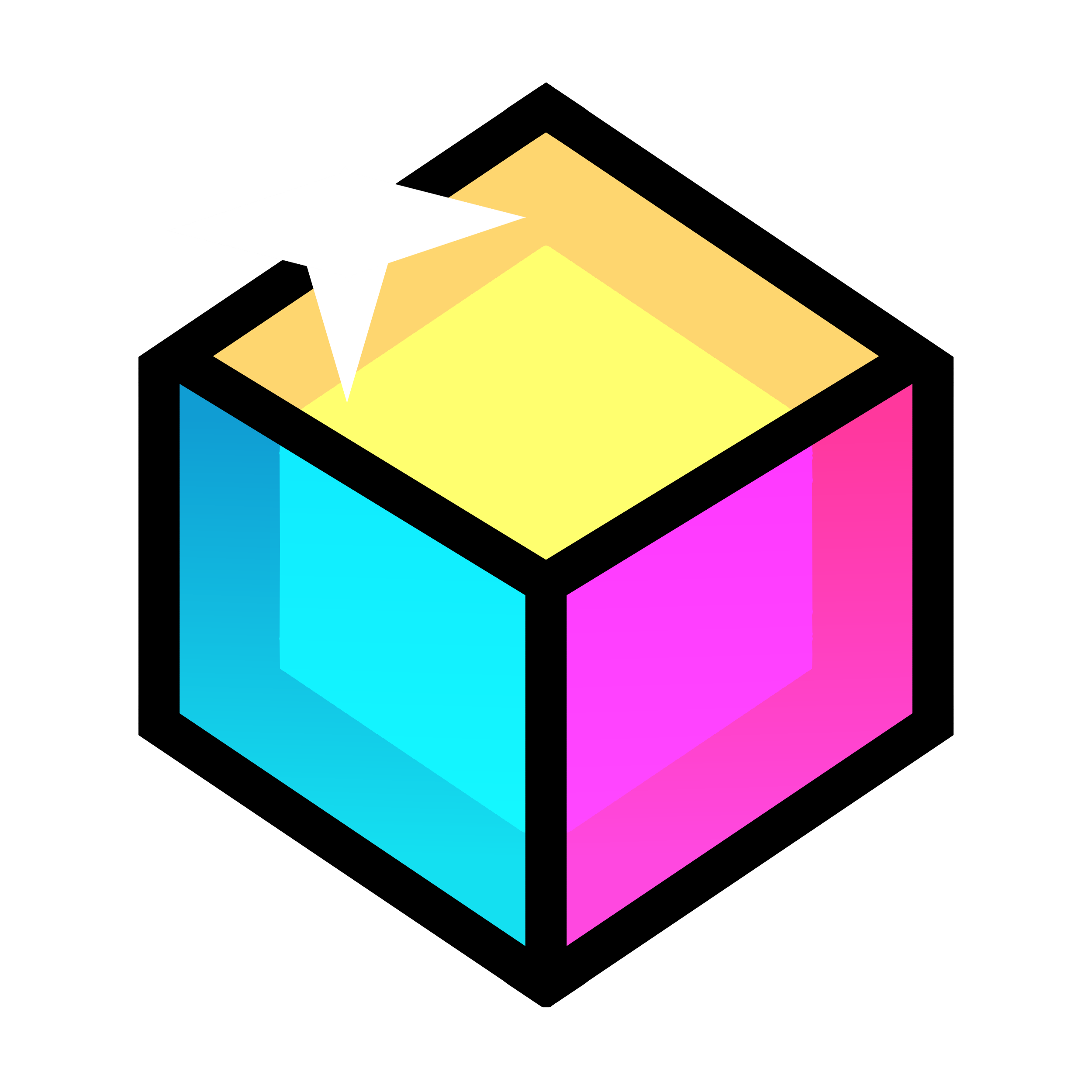Importing Models (Blender)
Importing Models
When you are importing Project DIVA models into Blender, you need to make sure that you have the correct settings before you import.
On the FBX import window, change the Armature settings from in the bottom right to:
| ˅ Armature | |
| Primary Bone Axis | X Axis |
| Secondary Bone Axis | Y Axis |
Everything else can be left as is on import. This will properly align the bones, both for use in Blender, and for export later.
Exporting Models
When you export from Blender, export as FBX, and make sure you have the following settings on the export window:
| ˅ Transform | |
|---|---|
| Scale | 1.00 |
| Apply Scalings | FBX Units Scale |
| Forward | -Z Forward |
| Up | Y Up |
| Apply Unit | 🗸 |
| Use Space Transform | 🗸 |
| Apply Transform | ✗ |
| ˅ Armature | |
|---|---|
| Primary Bone Axis | X Axis |
| Secondary Bone Axis | Y Axis |
| Armature FBXNode Type | Null |
| Only Deform Bones | ✗ |
| Add Leaf Bones | ✗ |
Any settings that are not listed can be left alone.
Exporting Models (Head)
Project DIVA head models are a little bit special, in that they have a model hierarchy that needs to be restored, and settings that need to be changed on input.
Restoring the Model Hierarchy
After importing the head model like normal, you need to parent each mesh to the empty it belongs to in MikuMikuModel.
For example:
mikitm000_atam_head_00__divskn
eye_MZ
eyeblow_MZ
eyelashes_MZ
eyelid_MZ
face_MZ
oral_MZ
This is how these meshes are parented in MikuMikuModel, so we have to do the same in Blender. You can do this by selecting each of the meshes, then selecting the armature, and pressing Ctrl+P (Keep Transform). This will restore the object hierarchy, so that the model can be correctly imported into MikuMikuModel.
Exporting Face Models
Because of how Project DIVA handles the EYEBALL shader in game, you need to slightly tweak your export settings. You need to make sure your Geometry settings on the export window are the same as listed below:
| ˅ Armature | |
|---|---|
| Smoothing | Normals Only |
| Export Subdivision Surface | ✗ |
| Apply Modifiers | 🗸 |
| Loose Edges | ✗ |
| Triangulate Faces | ✗ |
| Tangent Space | 🗸 |
This seems to fix most of the issues with the EYEBALL shader, but you may also need to use the "Generate Tangents" function in MikuMikuModel to fix additional issues: (NOTE: Unstable MikuMikuModel may be required to generate the proper tangents. If there are no AppVeyor builds available, you may need to manually build MikuMikuModel)
All other export settings can be followed from Exporting Models
